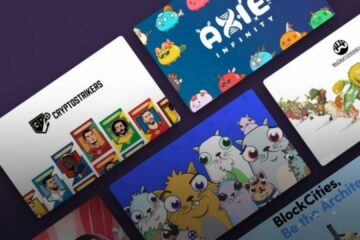The video game industry is an ever-evolving landscape of new ideas, techniques, and technology. One such innovation has been the introduction of Non-Fungible Tokens (NFTs), or blockchain-based tokens that can be used to create unique items within a game that cannot be replicated or traded with another player. Despite this recent influx in popularity, there are still many challenges ahead in terms of regulation and adoption. Let’s explore these future challenges and how they might affect NFTs!
What are Non-Fungible Tokens, or NFTs for short?
A Non-Fungible Token, or NFT for short, is a cryptocurrency token based on the ERC721 protocol. These tokens are distributed as “limited edition”, meaning that they can’t be copied or traded with another player–meaning that all NFTs exist in a finite amount. This design has made it possible for these tokens to be used as a way of creating unique items within a game that cannot be replicated.
Potential challenges ahead
Many challenges lie ahead in terms of regulation and adoption. For starters, there is a looming question of whether video games can actually fall under the definition of a “security”. Due to the fact that these tokens are generally designed for use within a single game environment, they may not be deemed a security by U.S. securities laws. However, if the tokens have been designed with an intent to be traded between players this would make them subject to U.S. Securities law and could affect their future usage in many games worldwide. In addition, there is also the issue of how else NFTs will be regulated outside of U.S securities law–in countries such as China or Japan where cryptocurrencies are heavily regulated already.
How can NFTs be used in games?
NFT tokens have been designed to mimic the experience of trading cards. For example, there is a popular game called CryptoKitties where players collect and trade digital cats on the blockchain. Each cat has its own unique number or “Cattribute” which helps determine its rarity and price–similar to how non-fungible baseball cards were traded in their early days. These Cattributes can even be passed down from generation to generation just like real life family heirlooms! This has opened up a new dynamic for gamers and collectors alike who can use NFTs as an alternative way to obtain rare items that cannot be replicated or imitated by another player.
Why do developers like them so much?
NFTs are extremely popular in the world of gaming because they allow for the creation of unique digital items that can’t be replicated or traded with another player. This is because each token is only ever one-of-a-kind. And while this technology has recently seen a surge in popularity, it still faces many challenges in terms of regulation and adoption. Let’s explore what these future challenges might entail!
What are the current issues?
Although blockchain technology is already being used by many companies, there hasn’t been any widespread adoption of NFTs. According to Liam Bussell – Head of Operations at Blockade Games – one major issue that lies ahead is the lack of clarity around regulation for this new technology. Many countries have yet to draft clear guidelines on how tokens should be handled, which can make it difficult for players and creators alike. Additionally, until these rules are finalized, it could be hard for other countries to readily adopt these digital items as well.
How might they change in the future?
According to Michael Jondral – Founder of Gamedex – these challenges will encourage developers to continue experimenting with this new technology. Eventually, this will lead to more successful implementations that have a greater impact on society as a whole. And while it’s not clear how exactly these future applications might look, there are already some exciting possibilities out there! For instance, an arcade could implement tokens in order to reduce transaction times within their venues. Rather than having players wait for ten or twenty minutes before replaying a slot machine or similar game of chance, they could use NFTs instead which would allow them to resume playing almost immediately. Or perhaps major cultural institutions like the Guggenheim museum could introduce digital tickets using blockchain technology in order to minimize counterfeiting and fraud? It’s currently unclear what direction developers will take with non-fungible tokens but with time, we will start to see greater numbers of success stories like these.
What’s our take?
It’s clear that NFTs are still in their infancy, but they have the potential to make a real impact on the world of gaming and beyond. And while there are certainly some concerns ahead – such as regulatory challenges and a lack of clarity around this new technology – developers remain confident that future implementations will help foster a better understanding of blockchain-based goods that can be used across multiple areas of our lives. So while it might be impossible to predict exactly how these digital tokens might change the world, it seems likely that they could have an important role to play in years to come!



0 Comments